Tools Required
J 8062 Valve Spring Compressor
- Install the AT range selector cable clip bracket.
- Install the AT range selector cable clip bracket bolt to the rear of the left cylinder head.
- Install the AT range selector cable clip bracket bolt to the side of the left cylinder head.
- Install the ECT sensor hole plug using sealant GM P/N 12346004 or equivalent, if removed.
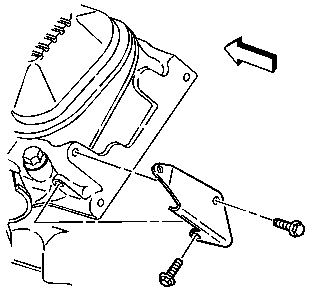
Notice: Use the correct fastener in the correct location. Replacement fasteners must be the correct part number for that application. Fasteners requiring replacement or fasteners requiring the use of thread locking compound or sealant are identified in the service procedure. Do not use paints, lubricants, or corrosion inhibitors on fasteners or fastener joint surfaces unless specified. These coatings affect fastener torque and joint clamping force and may damage the fastener. Use the correct tightening sequence and specifications when installing fasteners in order to avoid damage to parts and systems.
Tighten
Tighten the AT range selector cable clip bracket bolt to 66 N·m
(49 lb ft).
Tighten
Tighten the AT range selector cable clip bracket bolt to 40 N·m
(30 lb ft).
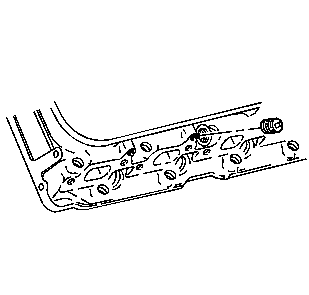
Tighten
Tighten the ECT sensor hole plug to 23 N·m (17 lb ft).
Valve Installation
- Lubricate the valve stems with clean engine oil.
- Insert the valves into their proper locations.
- Lubricate rotators with clean engine oil (5).
- Install the rotators over the guide and onto the cylinder head.
- Install the valve stem oil seal (4) onto the valve guide.
- Install the valve spring (3).
- Install the valve spring cap (2).
- Compress the valve spring, using the J 8062 , in order to clearly see the valve stem key grooves.
- Install the valve stem keys.
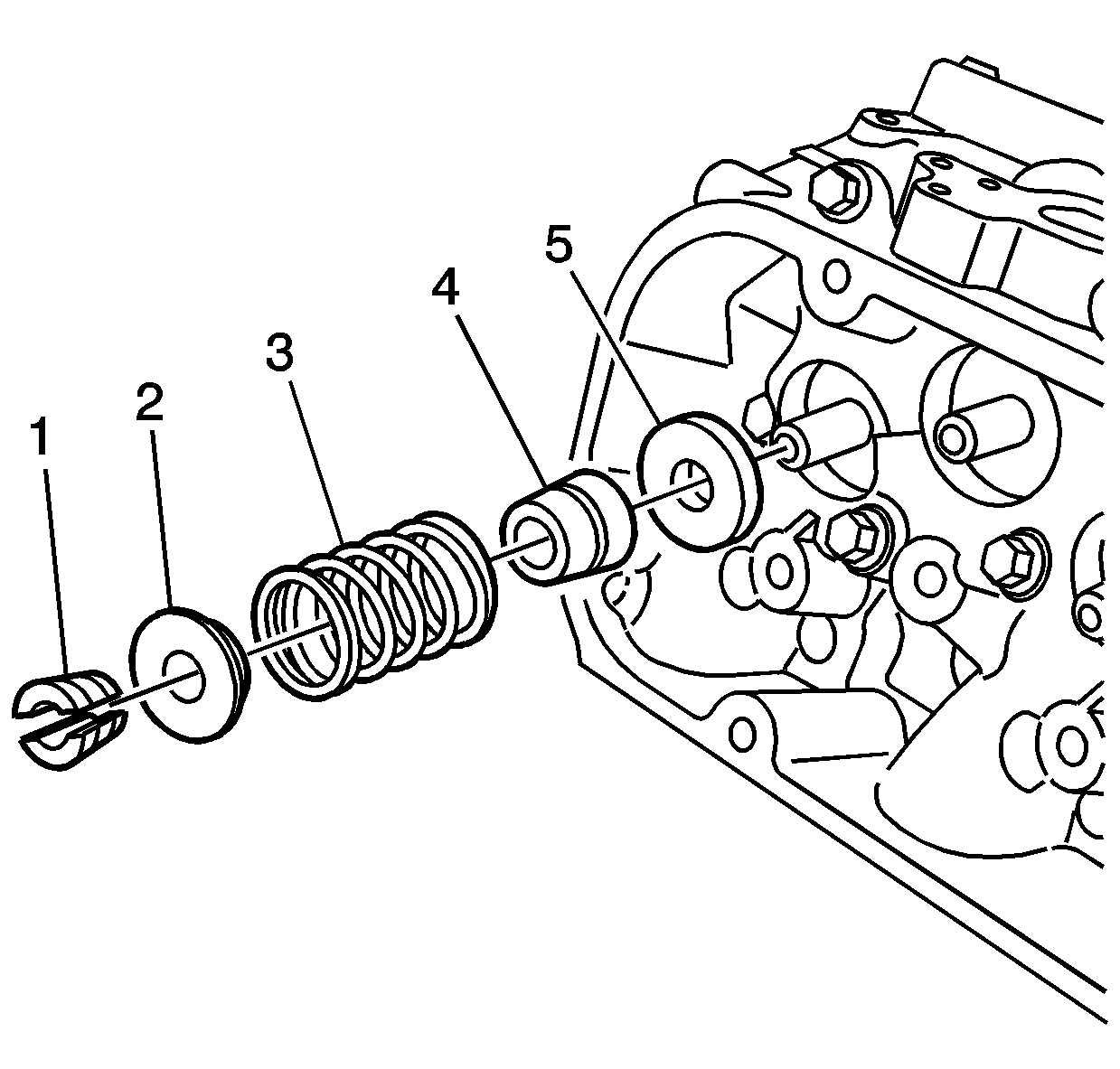
Important: When installing valve stem oil seals onto the valve guides be careful not to tear the seal lip during installation.
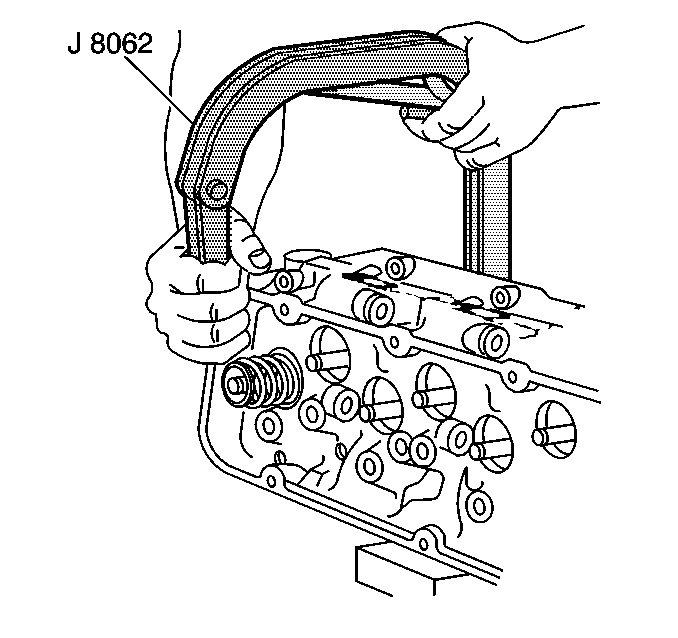
Caution: Compressed valve springs have high tension against the valve spring compressor. Valve springs that are not properly compressed by or released from the valve spring compressor can be ejected from the valve spring compressor with intense force. Use care when compressing or releasing the valve spring with the valve spring compressor and when removing or installing the valve stem keys. Failing to use care may cause personal injury.
| 9.1. | Use grease in order to hold the keys in place. |
| 9.2. | Ensure that the valve stem keys seat properly in the upper groove of the valve stem. |
| 9.3. | Release the J 8062 . |
| 9.4. | Remove the J 8062 . |
| 9.5. | Tap the end of the valve stem with a plastic-faced hammer in order to seat the valve stem keys. |
Checking Valve Spring Installed Height
- Measure the valve spring for the properly installed height.
- Install a valve spring seat shim if the valve spring installed height measurement is above the specification.
- Recheck the valve spring installed height, replace the cylinder head if the valve spring installed height cannot be obtained.
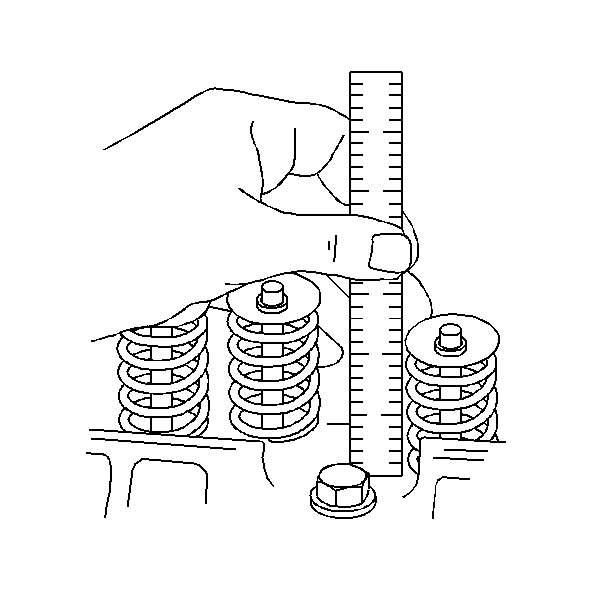
Use a thin scale and measure from the cylinder head spring seat to the top of the valve spring cap. Refer to Engine Mechanical Specifications for proper valve spring installed height specifications.
Important: Never shim the valve spring to obtain an valve spring installed height under the specified amount.
Important: Install the valve spring seat shims under the rotator (between the rotator and the cylinder head spring seat).
Important: Add a maximum of one shim, up to 0.726 mm (0.030 in) thick, to achieve the valve spring installed height specification.
Important: The combination of shims to correct valve spring installed height and valve spring tension should not exceed 1.524 mm (0.060 in) thick.
